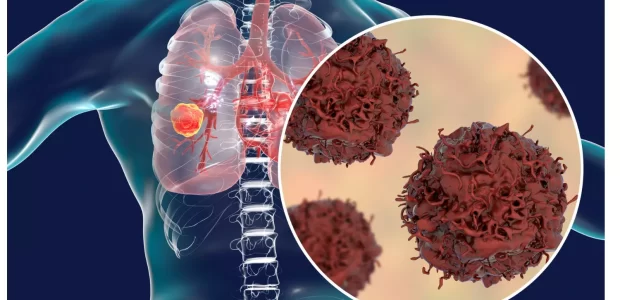
Welcome to our comprehensive and original guide on the Lung Cancer Therapeutics Market Size. In this unique blog post, we will delve into the intricacies of the lung cancer therapeutics industry, providing you with valuable insights and well-researched information. Lung cancer remains a significant global health concern, but with cutting-edge treatments and ongoing research, there is hope for better outcomes and improved quality of life for patients.
Understanding the Lung Cancer Therapeutics Market
The lung cancer therapeutics market plays a pivotal role in the battle against this deadly disease. It encompasses a wide range of treatment options that aim to manage and combat lung cancer effectively. These treatments are designed to target cancer cells specifically, while minimizing damage to healthy cells.
Components of the Lung Cancer Therapeutics Market:
- Chemotherapy: Chemotherapy, a cornerstone of lung cancer treatment, uses powerful drugs to destroy cancer cells or slow down their growth. Though it can cause side effects, it has been an integral part of lung cancer therapy for decades.
- Immunotherapy: Immunotherapy is an innovative approach that enhances the body’s immune system to recognize and attack cancer cells. This treatment has shown remarkable success in lung cancer patients by improving survival rates and quality of life.
- Targeted Therapy: Targeted therapies are designed to pinpoint specific molecular abnormalities in cancer cells, leading to more precise and effective treatment. They offer new hope for patients with specific genetic mutations, such as EGFR and ALK.
- Radiation Therapy: Radiation therapy employs high-energy X-rays to kill cancer cells and shrink tumors. It can be used alone or in combination with other treatments, providing significant benefits in localized lung cancer cases.
- Surgery: Surgical intervention plays a crucial role in localized lung cancer, with skilled surgeons aiming to remove cancerous tumors and surrounding tissues to prevent further spread of the disease.
Benefits and Applications of Lung Cancer Therapeutics:
The advancements in lung cancer therapeutics have resulted in several key benefits and applications:
- Personalized Treatment: Targeted therapies and immunotherapies allow for a personalized treatment approach, taking into account individual patients’ genetic makeup and tumor characteristics. This approach unleashes the full potential of treatment effectiveness while keeping adverse effects at bay.
- Improved Survival Rates: The introduction of targeted therapies and immunotherapies has significantly improved lung cancer patients’ survival rates. These treatments have brought new hope to those facing advanced-stage lung cancer.
- Long-term Management: Lung cancer therapeutics aim not only at curing the disease but also at managing it over the long term. With continuous treatment innovations, patients can lead a better quality of life.
- Combination Therapies: Researchers are exploring the benefits of combining different treatment modalities to achieve synergistic effects and enhance treatment response. Combination therapies hold promise in tackling resistant cancer cells.
Factors Driving the Lung Cancer Therapeutics Market:
Several factors are fueling the growth of the lung cancer therapeutics market:
- Growing Incidence: Lung cancer continues to be one of the leading causes of cancer-related deaths globally. The increasing prevalence of lung cancer cases drives the demand for effective treatments.
- Advancements in Research: Continuous research and development efforts have led to groundbreaking discoveries in lung cancer therapeutics. New treatment options and approaches are emerging, revolutionizing patient care.
- Government Support: Governments worldwide are recognizing the importance of cancer research and treatment. Increased funding and supportive policies are contributing to the development and accessibility of advanced therapies.
Challenges and Barriers in the Lung Cancer Therapeutics Market:
While the market is thriving, it faces certain challenges and barriers:
- Resistance to Therapies: Over time, cancer cells can develop resistance to targeted therapies, reducing treatment effectiveness. Researchers are working to overcome this challenge through novel drug combinations and treatment approaches.
- High Treatment Costs: Some advanced lung cancer therapies can be costly, limiting access for certain patient populations. Efforts are being made to make treatments more affordable and accessible.
- Disparities in Healthcare Access: Access to quality healthcare and advanced lung cancer treatments may be limited in some regions, leading to disparities in treatment options and outcomes.
Market Opportunities and Future Outlook:
The lung cancer therapeutics market presents exciting opportunities for future growth:
- Personalized Medicine Advancements: The field of personalized medicine is rapidly evolving, offering tailored treatments based on each patient’s unique genetic profile. This approach holds immense potential for improving treatment outcomes.
- Combination Therapies: Researchers continue to explore combination therapies to address drug resistance and improve treatment efficacy. Novel combinations are being tested in clinical trials, paving the way for more effective lung cancer treatment regimens.
- Early Detection and Screening: Advances in early detection and screening technologies are crucial in identifying lung cancer at its early stages when treatment outcomes are generally more favorable.
Conclusion:
The lung cancer therapeutics market is at the forefront of the battle against lung cancer, bringing new hope to patients and their families. With a diverse range of treatment options and ongoing research efforts, we are witnessing unprecedented advancements in lung cancer care. The future of lung cancer therapeutics is promising, with personalized medicine, combination therapies, and enhanced healthcare accessibility playing vital roles in improving patient outcomes.
As we continue to advance in medical science, let us stand together in the fight against lung cancer, bringing hope and healing to patients worldwide. Together, we can make a difference and shape a brighter future for lung cancer patients and their loved ones
